Elizabeth Peratrovich a native woman in Alaska and civil rights pioneer bearing Croatian second name
http://www.croatia.org/crown/articles/11274/1/Elizabeth-Peratrovich-a-native-woman-in-Alaska-and-civil-rights-pioneer-bearing-Croatian-second-name.html
By Nenad N. Bach and Darko Žubrinić
Published on 12/30/2020
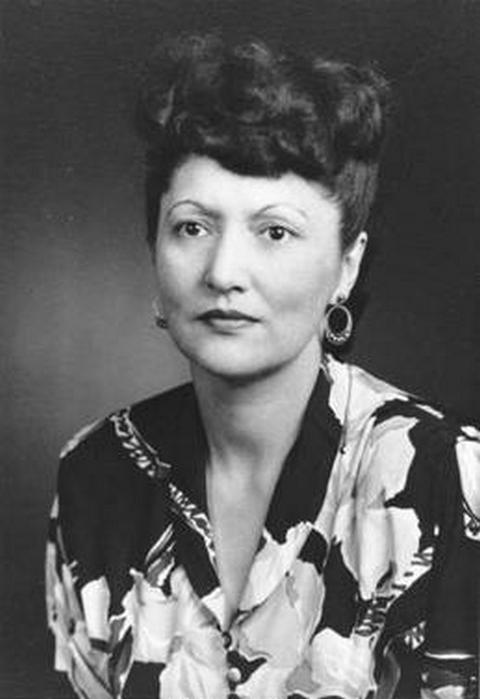
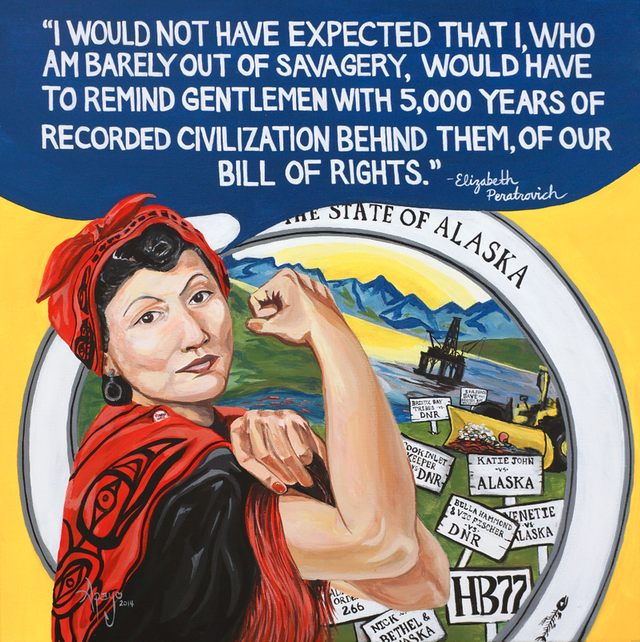

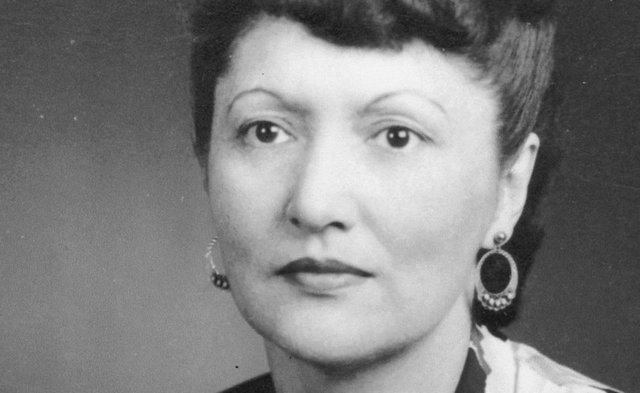
Alaska Native Civil Rights activist Elizabeth Peratrovich was the first Alaska Native to be minted on a U.S. coin.
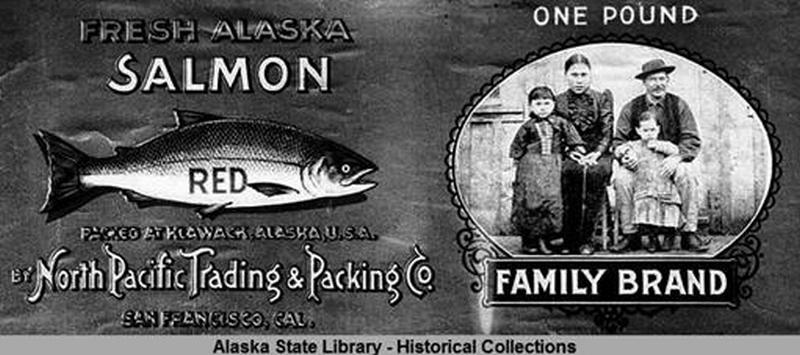
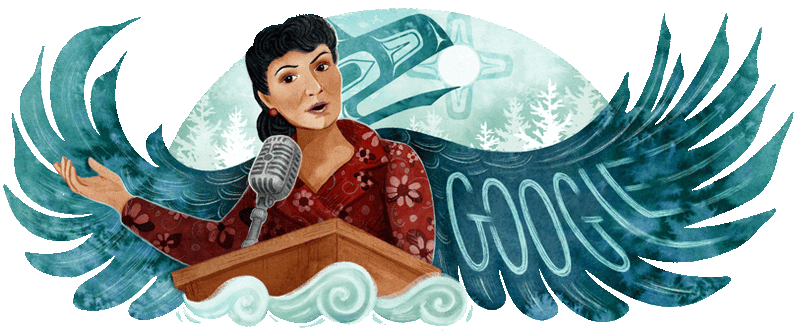
 | Elizabeth Peratrovich (1911-1958) was a native Tlingit woman and civil rights pioneer who, in 1945, was instrumental in getting the Alaska legislature to pass what historians cite as the first anti-discrimination law in America (pre-dating the Civil Rights Act by 19 years). In 1988, the state of Alaska designated Feb. 16 -- the anniversary of the signing of the act -- as a holiday honoring Elizabeth Peratrovich. Her second name of Peratrovich comes from her husband Roy Peratrovich. His father Ivan was born in Croatia on the island of Hvar, and arrived to California in 1860. |
Getting the Alaska legislature to pass the first anti-discrimination law in America

Elizabeth Peratrovich (1911-1958), Alaska, pioneer of civil rights in the USA
| Elizabeth Peratrovich, 1911-1958 Elizabeth Peratrovich was a native Tlingit woman and civil rights pioneer who, in 1945, was instrumental in getting the Alaska legislature to pass what historians cite as the first anti-discrimination law in America (pre-dating the Civil Rights Act by 19 years). In 1988, the state of Alaska designated Feb. 16 -- the anniversary of the signing of the act -- as a holiday honoring Elizabeth Peratrovich. Her second name of Peratrovich comes from her husband Roy Peratrovich (1908-1989). His father Ivan was born in Croatia on the island of Hvar, and arrived to California in 1860. |

| Who was Elizabeth Peratrovich? Elizabeth Peratrovich was a native Tlingit woman and civil rights pioneer who, in 1945, was instrumental in getting the Alaska legislature to pass what historians cite as the first anti-discrimination law in America (pre-dating the Civil Rights Act by 19 years). In 1988, the state of Alaska designated Feb. 16 -- the anniversary of the signing of the act -- as a holiday honoring Elizabeth Peratrovich. ************************************************** Prior to passage of Alaska's Anti-Discrimination Act, Alaska Natives were subjected to institutionalized discrimination throughout the territory. They were barred entry to many businesses, went to segregated schools, had to sit in separate seating areas in movie theaters and other public places, and were generally treated as second-class citizens. 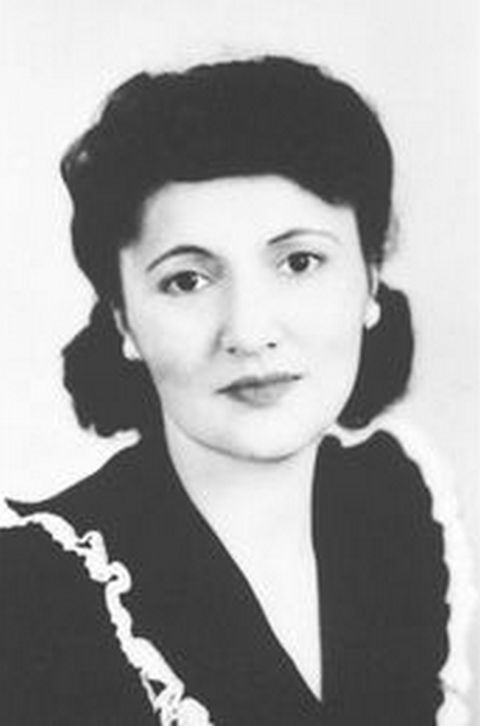 Elizabeth Peratrovich In 1945, an anti-discrimination bill was introduced in the Alaska Legislature. It passed by a 19-5 margin with little debate. But in the territorial Senate, it faced virulent opposition. Senator Frank Whaley of Fairbanks said that he didn't want to sit next to an Eskimo in a movie theater because, he said, Eskimos didn't bathe regularly. Senator Tolbert Scott of Nome said that the bill would encourage intermarriage and increase what he called the "mixed breed problem." And Senator Allen Shattuck of Juneau said: "Far from being brought closer together, which will result from this bill, the races should be kept further apart. Who are these people, barely out of savagery, who want to associate with us whites with five thousand years of recorded civilization behind us?" After several senators spoke in favor of the bill, public testimony began. Roy Peratrovich, President of the Alaska Native Brotherhood (ANB), spoke a few words. And then his wife, Elizabeth, put down her knitting, rose in the gallery and asked to speak. She strode to the podium to address the senators. Contemporary news accounts noted that she was - as always - well dressed and very composed. One reporter referred to her appearance as "extremely beautiful" and "regal." "I would not have expected," Elizabeth Peratrovich testified in a quiet but clear voice, "that I, who am barely out of savagery, would have to remind gentlemen with five thousand years of recorded civilization behind them, of our Bill of Rights." 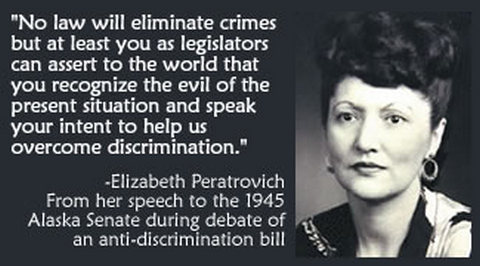 She then calmly discussed the many ways that Alaska Natives were discriminated against, including a personal story of how her own family had faced racism. "There are three types of persons who practice discrimination," she concluded. "First, the politician who wants to maintain an inferior minority group so that he can always promise them something. Second, the Mr. and Mrs. Jones who aren't quite sure of their social position and who are nice to you on one occasion and can't see you on others, depending on who they are with. Third, the great superman who believes in the superiority of the white race." Senator Shattuck asked her if she thought the bill would eliminate discrimination altogether. "Do your laws against larceny and even murder prevent those crimes?" Peratrovich responded. "No law will eliminate crimes but at least you legislators can assert to the world that you recognize the evil of the present situation and speak your intent to help us overcome discrimination."  The Juneau Daily Alaska Empire reported that chambers, which had been completely still during her testimony, broke into loud applause. The tide had clearly turned against those opposing the legislation. "It was the neatest performance of any witness yet to appear before this session and there were a few red senatorial ears as she regally left the chambers," the Empire reported. "Had it not been for that beautiful Tlingit woman, Elizabeth Peratrovich, being on hand every day in the hallways, it (the anti-discrimination bill) would have never passed," Ernest Gruening, Alaska's territorial Governor, wrote in his autobiography, Many Battles. The bill passed the Senate by an 11-5 margin on February 8, 1945, and was signed into law by Gov. Gruening on February 16, 1945. It was the first such document passed by any state or territory since the Civil War. That evening Elizabeth and Roy Peratrovich spent the evening dancing in the lounge at the Baranof Hotel. The day before, that same lounge had been off limits to Native Alaskans. Martin Luther King had just turned 16 and was still a high school student in Atlanta. ************************************************** Elizabeth Peratrovich was born on July 4, 1911 in Petersburg. Her Tlingit name was Kaaxgal.aat and she was of the Lukaax.adi clan of the Raven moiety, according to information from the Alaska Native Sisterhood. Her parents died when she was very young and she was adopted by Presbyterian missionaries Mary and Andrew Wanamaker. She attended school in Petersburg and Sitka and eventually graduated from high school in Ketchikan in 1931. One of her classmates was her future husband Roy Peratrovich of Klawock. Elizabeth's Senior Picture in the 1931 Ketchikan High School yearbook included her senior motto: "By the words of thy mouth will I judge thee." After graduation, Elizabeth attended the Western College of Education in Bellingham, Washington, while Roy attended Bellingham Normal College. On December 15, 1931, they were married. 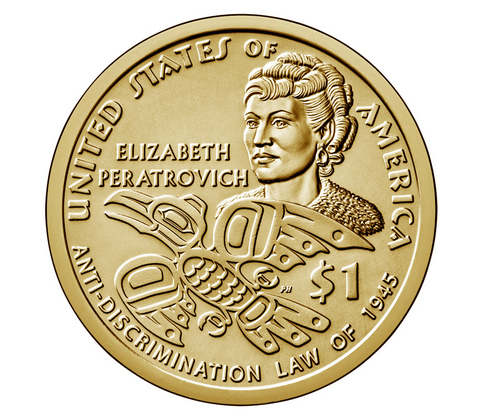 After the couple settled in Klawock, Roy initially served as a captain of cannery tenders and a fish buyer from 1931 to 1936, while Elizabeth began raising their three children - Roy Jr., Frank and Loretta. From 1936 to 1941, Roy served as policeman, chief clerk, city judge, postmaster, and eventually Mayor of Klawock. In 1941, he was unanimously elected Grand President of the ANB and served until 1945. And in 1941, Elizabeth was elected Grand President of the Alaska Native Sisterhood. 1941 was also the year that the family moved to Juneau and was shocked to discover even the relatively cosmopolitan city of Juneau had significant issues with racial discrimination. Many businesses in Juneau had "No Natives allowed" policies. The Peratrovichs were also angered when they attempted to lease a home in a neighborhood in downtown Juneau so Roy would be close to his new work with the territorial government. When the property owner discovered the couple was Native, he withdrew his original agreement to sell them the house. On Dec. 30, 1941, just after the U.S. entered World War II, the couple wrote a joint letter to Territorial Gov. Ernest Gruening. "In the view of the present emergency when unity is being stressed don't you think that (this) is very un-American?" the letter read. "We have always contended that we are entitled to every benefit accorded our so-called White Brothers. We pay the required taxes, taxes in some instances that we feel are unjust such as the school tax. Our Native people pay the school tax each year to educate the white children, yet they try to exclude our children from these schools." The Peratrovichs' letter went on to note that young Native men were already serving in the armed forces and were "just as willing to lay down their lives to protect" the freedom of all Americans. "We were shocked when the Jews were discriminated against in Germany," they wrote. "Yet (discrimination) is being practiced in our country. When a Norwegian, Swede or Irishman makes a fool of himself in a business establishment, he is asked to leave and it is not held against all of the Norwegians, Swedes or what have you. We ask to be accorded the same considerations." ************************************************** After 1945, Elizabeth continued to work for equality for the Native community. She was particularly interested in improving health care throughout the territory. As her children grew older, she also went to work for the territorial legislature in different capacities. Roy continued to work for the federal government in Alaska. In 1955, Roy was given a new job with the Bureau of Indian Affairs, and the family had to move to Oklahoma. In 1956, Elizabeth Peratrovich attended a conference in Tennessee on adult Indian education. She heard 26-year-old Martin Luther King speak on the desegregation of churches and was very impressed, according to her family. In 1958, Elizabeth Peratrovich died after a long battle with cancer and was buried at Evergreen Cemetery in Juneau. She was just 47. Roy eventually returned to Alaska, serving as one of the top BIA officials in the state before retirement. In the 1980s, Dorothy McKinley, the president of the Douglas camp of the Alaska Native Sisterhood, started an effort to have a day set aside to remember Elizabeth Peratrovich. "McKinley started the effort to honor a Native civil rights leader last year when reading some 'letters to the editor' in Anchorage newspapers crediting Martin Luther King Jr. with helping to gain equal rights for Alaska Natives," the Juneau Empire reported on Feb. 15, 1989. "She knew what she was reading and what had actually happened were two different stories. She knew that Alaska Natives themselves had battled for equal protection under the law as early as 1912 with the formation of the Alaska Native Brotherhood, whose initial objective was obtaining citizenship for Alaska Natives. McKinley wanted to give credit where credit was due." 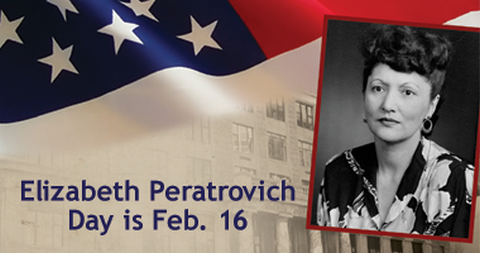 The Alaska State House and Senate agreed, and Governor Steve Cowper designated February 16 as the first Elizabeth Peratrovich Day in 1988. Roy Peratrovich died just nine days before the first Elizabeth Peratrovich Day was celebrated. Posted by Greg Mandel Source elizabethperatrovich.blogspot.com |
February 16, 2012 - Senator Mark Begich (of Croatian roots) honors Elizabeth Peratrovich Day
by speaking on the Senate floor about the history of civil rights in Alaska
and Peratrovich's role in fighting for civil rights for all Alaskans.


Alaska Native Civil Rights activist Elizabeth Peratrovich was the first Alaska Native to be minted on a U.S. coin.
Peratrovich was Tlingit and her hometown of Petersburg celebrated on Sunday marking the 75th anniversary
of her famous testimony to the Alaska Legislature.

Ivan Peratrovich sa suprugom i djecom na etiketi konzerve lososa (arhiv: Alaska State Library Collection P20-171)
| Branka Bezić Filipović HVARSKI RIBARI I BRODOGRADITELJI U NOVOME SVIJETU Muzej Staroga Grada Galerija Juraj Plančić, Stari Grad 2019. Peratrovich, Ivan, došao je sa Hvara u Kaliforniju 1860. godine. Njegovo prezime se povezuje s obiteljskim nadimkom Paretović ili Valensolo, a mjesto rođenja otok Hvar, Austria. Teško je točno odrediti njegovo prezime, zbog lošeg spo- razumijevanja i rukopisa onih koji su vodili knjige. Da bi stigao u Kaliforniju, Ivan je morao ploviti do Magellanovog prolaza i oploviti skoro cijelu pacifičku obalu obje Amerike. Prema teško čitljivim dokumentima rođen je 26. 12. 1851. godine. Spomenut je kao šesnaestogodišnjak koji je došao u San Francisco u vrijeme kada je bila velika potražnja za ribarima. Upisan je u analima društva Slavonic Mutual Benevolent Society, osnovanog 1857. Dobrotvorna društva bila su uobičajena u to vrijeme. Članovi su plaćali članarinu kako bi dobivali naknadu ako su bili bez posla ili bi se razboljeli. Društvo je s vremenom promijenilo svrhu i više se bavilo kulturom i baštinom, a trajalo je skoro 160 godina. I mladi Ivan se učlanio u Slavonic Society. Peratrovich je radio na ribarskom brodu, koji se jednom prilikom nasukao na Seal Islandu, otočiću između otoka St. Paul i St. George u sklopu istočnih Aleuta, u Beringovom prolazu. Spasili su ga Eskimi i tu se zadržao četiri mjeseca. Zatim ga je ruski kuter odvezao u Sitku na Aljasci. Prema pričanju njegovog sina Roberta, koje je 1972.g. objavljeno u Urban News iz Anchoragea, John je zatim kanuom krenuo u Victoriju u Kanadi, ali se na putu zaustavio u Klawocku. Tamo je odlučio i ostati jer je bio jedini koji je znao izrađivati ribarske mreže, pa je započeo raditi u tvornici za konzerviranje lososa. Oženio je princezu plemena Tlingit, koja je bila znatno starija od njega, ali to nikome nije smetalo. Ona je već ranije bila udana i imala je troje djece. Ivanu je rodila četiri sina. On se kasnije ponovno oženio i postao je ključna osoba tvornice pa su na etiketi Family brands otisnuli njegovu fotografiju, zajedno sa suprugom i njihovim kćerima. Etiketa je bila povučena nakon smrti jedne od djevojčica 1901. godine. Ivan (John) nikada nije dobio američko državljanstvo, jer je Aljaska smatrana teritorijem, a starosjedioci nisu htjeli položiti zakletvu Sjedinjenim Državama. Aljaska je proglašena 49. saveznom američkom državom tek 1959. godine, a Peratrovich je umro 13. prosinca 1915. Prilikom plovidbe između tvornice i sela Klawock prevrnuo mu se brod. Iako je bio spašen, podlegao je zatajenju bubrega uzrokovanom izlaganju hladnom moru. Iza sebe ostavio je treću suprugu i, kako se računa, 29 djece. Izgradio je veliku kuću iz koje su djeca odlazila tek kada bi se vjenčala. Ivana opisuju kao tamnoputog niskog muškarca s brkovima. Jedina njegova fotografija je ona s konzerve. Prema pisanju Adama Eterovicha iz San Carlosa u Kaliforniji, Ivan je imao 525 direktnih potomaka. Sahranjen je na Peratrovich Islandu, malenom otoku uz Klawock nazvanom njemu u čast, na kojemu je smješteno gradsko groblje. Ivanov sin Roy, diplomirani ekonomist, oženio je domorotkinju Elizabeth Wanamaker, rođenu 1911. godine. Zbog diskriminacije koju su doživljavali jer se starosjedioce tretiralo kao građane drugog reda - primjerice, na nekim mjestima je pisalo: No natives or dogs (Zabranjen ulaz starosjediocima i psima), Elizabeth je iskoristila svoju pravničku vještinu i započela borbu za ljudska prava. Nije se zaustavila sve dok državni Senat nije zakonom zabranio diskriminaciju. Umrla je od karcinoma 1958. godine, a 16. veljače proglašen je Danom Elizabeth Peratrovich za cijelu Aljasku. Iza nje su ostali suprug, sinovi Frank (kipar) i Roy Jr. (prvi registrirani lokalni građevinski inženjer Aljaske), te kći Loretta. 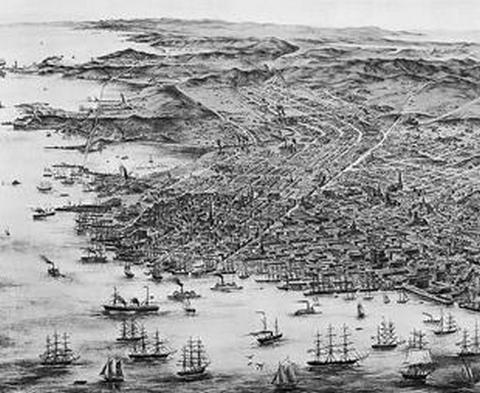 San Francisco 1848. godine i zastava Slavonic Society osnovanog 1857. godine (izvor: Croatian American Cultural Center of San Francisco) 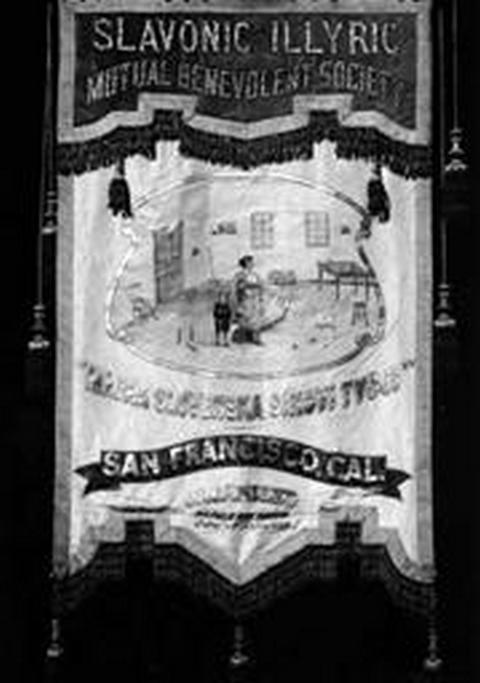 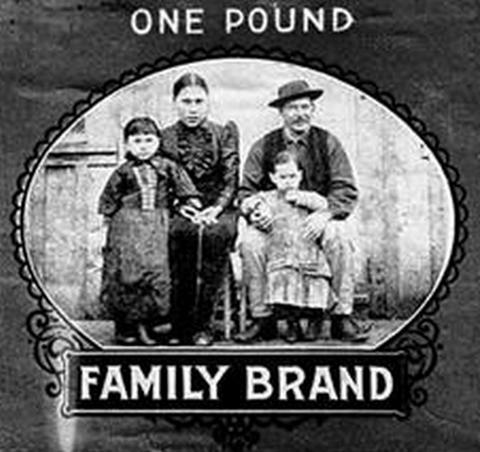 Ivan Peratrovich (father of Roy Peratrovich, husband of Elizabeth Peratrovich) with his family in Alaska 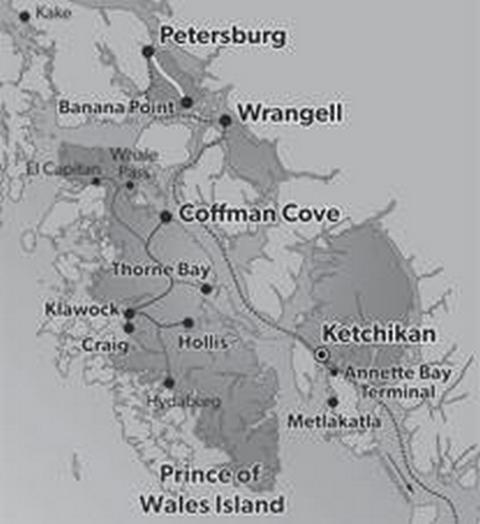 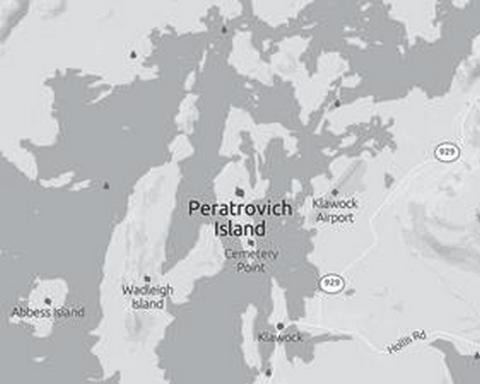 Karta otoka nazvanog po Ivanu Peratrovichu (izvor: arhiva autorice) 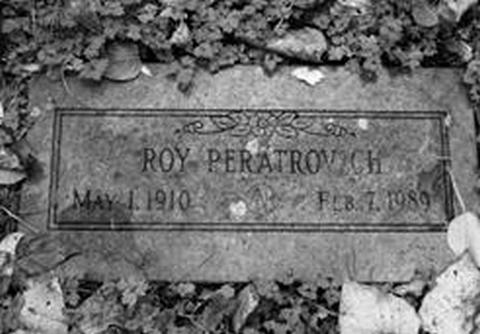 Roy Peratrovich's grave in Alaska Izvor www.studiacroatica.org/ribari/2019_ribari.htm Vidjeti također ====================== San Francisco 1848. godine i zastava Slavonic Society osnovanog 1857. godine (izvor: Croatian American Cultural Center of San Francisco) Seal Island danas (izvor: arhiva autorice) Peratrovich sa suprugom i djecom na etiketi konzerve lososa (arhiv: Alaska State Library Collection P20-171) Karta otoka nazvanog po Ivanu Peratrovichu (izvor: arhiva autorice) Elizabeth Peratrovich (izvor: Alaska State Library Collection) Grobovi Roya i Elizabeth Peratrovich (izvor: Alaska State Library Collection) |

Drawing of Elizabeth Peratrovich by Michaela Goade, Alaska
A parallel story:
Dame Mira Szaszy, b. Petricevich (1921-2001), was one of the most outstanding Maori women leaders of the 20th century.
She was the first Maori woman to graduate with a degree from The University of Auckland. Her father Luka Petricevich was Croatian.
Dame Mira was a former President of The Maori Women's Welfare League.